Author: United Nations Environment Programme
Negotiating and Implementing MEAs: A Manual for NGOs
2007
You may also be interested in

A Future for Small States: Overcoming Vulnerability
The message provides strategies for small states to overcome vulnerability and thrive in the future.
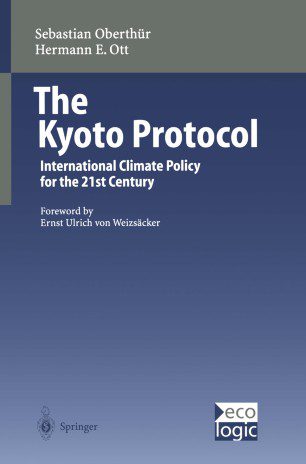
The Kyoto Protocol: International Climate Policy for the 21st Century
The Kyoto Protocol is considered a fundamental agreement in international climate policy for the 21st century, aiming to reduce greenhouse gas emissions to combat global warming.
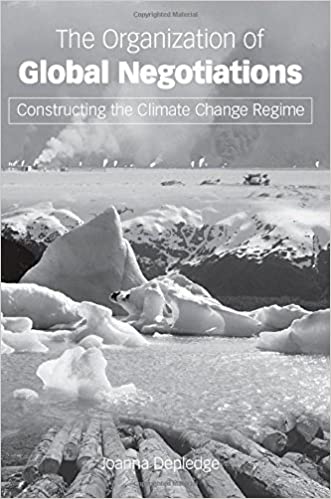
The Organization of Global Negotiations: Constructing the Climate Change Regime
The text discusses the importance of organizing global negotiations to construct the Climate Change Regime effectively.
A Framework of Best Practices for Caribbean Small States to Meet the Challenges of Climate Change
Caribbean Small States are considered vulnerable by virtue of their geographical peculiarities, economic exigencies, delicate ecosystems and rate of social development among other characteristics. Their ability to meet challenges such as climate change is therefore deficient.
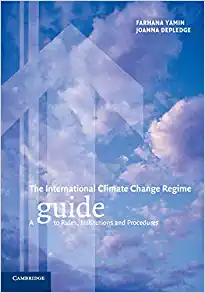
The International Climate Change regime: A Guide to Rules, Institutions and Procedures
The International Climate Change regime is a comprehensive guide that outlines the rules, institutions, and procedures related to addressing climate change on a global scale.
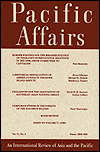
Roaring Mice Against the Tide: The South Pacific Islands and Agenda-Building on Global Warming
The text discusses how South Pacific Islands are exerting influence in global warming agenda-building despite their small size.

Small island states in the face of climatic change: The end of the line in international environmental responsibility
Small island states are disproportionately affected by climate change but are least responsible for causing it. They face severe consequences such as rising sea levels and extreme weather events, despite contributing very little to global carbon emissions. This poses a challenge to international environmental responsibility as these countries are vulnerable to the effects of climate change while having limited resources to adapt and mitigate its impacts.
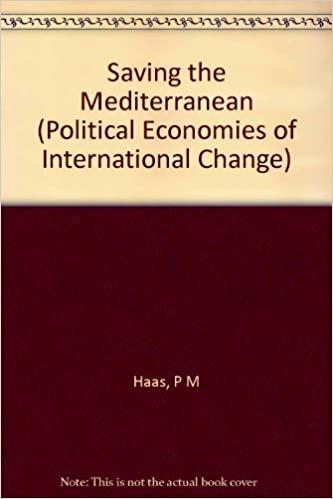
Saving the Mediterranean: The Politics of International Environmental Cooperation
The text discusses the complexities of international environmental cooperation in the Mediterranean region, focusing on the political aspects involved in efforts to save the environment.
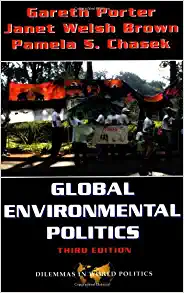
Global Environmental Politics
Global Environmental Politics discusses the intricate relationships between politics, society, and the environment. It delves into how political decisions impact environmental issues and how societal actions can influence political agendas regarding global environmental challenges. By examining the interplay between various stakeholders, policies, and power dynamics, the book sheds light on the complexities of environmental governance on a global scale.
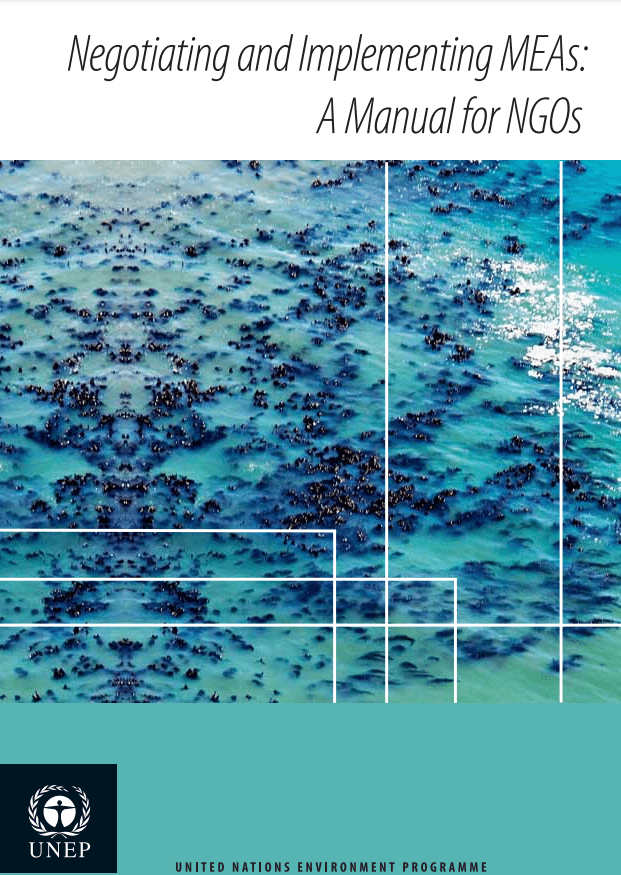
Negotiating and Implementing MEAs: A Manual for NGOs
The manual provides guidance for non-governmental organizations on negotiating and implementing Multilateral Environmental Agreements (MEAs). It offers practical advice and strategies for NGOs to effectively participate in these processes, ensuring their voice is heard and their expertise is utilized in shaping environmental policies at the international level.

The Long Summer: How Climate Changed Civilisation
Nothing is more changeable than ancient history. As we begin to interpret nature’s archives new insights emerge, overthrowing older orthodoxies, only to be toppled in turn by the next spate of facts. Brian Fagan's latest book too is but history in progress, with a fairly short shelf-life. In some parts it has already been challenged [1].
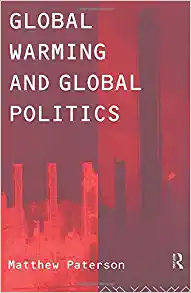
Global Warming and Global Politics
Global warming is a pressing issue with far-reaching consequences. It is crucial that global politics address this problem collaboratively, as it affects all nations and requires collective action. The impact of climate change is evident worldwide, and political leaders must prioritize sustainability and environmental protection in their policies. Cooperation on a global scale is necessary to combat the effects of global warming and ensure a sustainable future for all. Political decisions and policies have a significant impact on the environment, and it is essential for leaders to prioritize t...

Climate for Change: Non-state Actors and the Global Politics of the Greenhouse
The text explores the role of non-state actors in global climate politics, analyzing their impact on greenhouse gas emissions and environmental policies. These actors include businesses, NGOs, and local governments, who often operate independently of national governments to address climate change. Their efforts are crucial in mitigating the effects of global warming and pushing for stronger environmental regulations on a global scale.
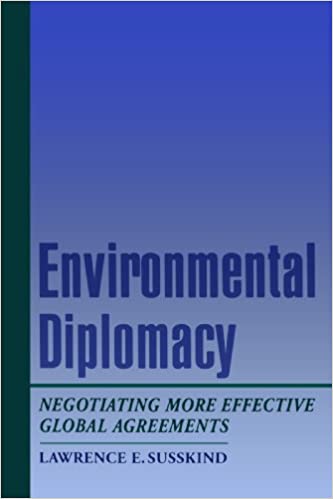
Environmental Diplomacy: Negotiating More Effective Global Agreements
The text is likely an article discussing the importance of environmental diplomacy in negotiating effective global agreements.

Summary of the Doha Climate Change Conference
Summary of the Doha Climate Change Conference. The Doha Climate Change Conference held in 2012 aimed to advance global efforts to address climate change. The conference resulted in an extension of the Kyoto Protocol, commitments for a new global agreement by 2015, and pledges by developed countries to provide financial support to developing nations. Additionally, the conference emphasized the importance of adaptation measures for vulnerable countries and discussed the need for long-term climate finance mechanisms. The conference highlighted the need for cooperation and collective action to com...
The Environmental Movement in the Global South
The message explores the environmental movement in the Global South, focusing on the challenges faced and the strategies employed to address environmental issues in developing countries.

Management of Natural and Environmental Disasters in Small Island Developing States
The message emphasizes the importance of disaster management in small island developing states due to their vulnerability to natural calamities. These states face unique challenges like limited resources, geographic isolation, and climate change impact. Capacity building, international cooperation, and innovative solutions are suggested as key strategies to enhance disaster resilience in these vulnerable regions.
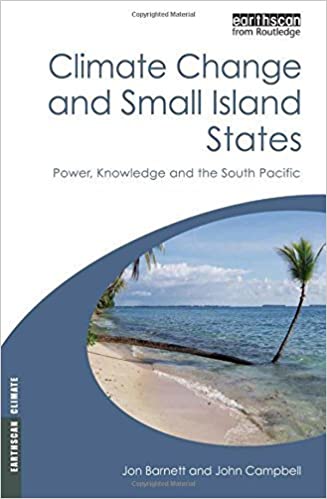
Climate Change and Small Island States: Power, Knowledge and the South Pacific
The text discusses the challenges small island states in the South Pacific face due to climate change. These states lack power and resources to adequately address climate issues, relying on external knowledge and support. The impact of climate change threatens their very existence, highlighting the urgent need for global cooperation and assistance to combat this crisis.
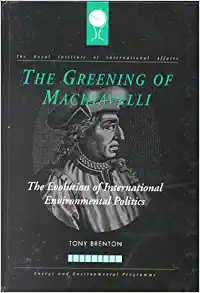
The Greening of Machiavelli: The Evolution of International Environmental Policy
The Greening of Machiavelli: The Evolution of International Environmental Policy" discusses the transformation of environmental policy on a global scale, reflecting a shift towards sustainability and cooperation.
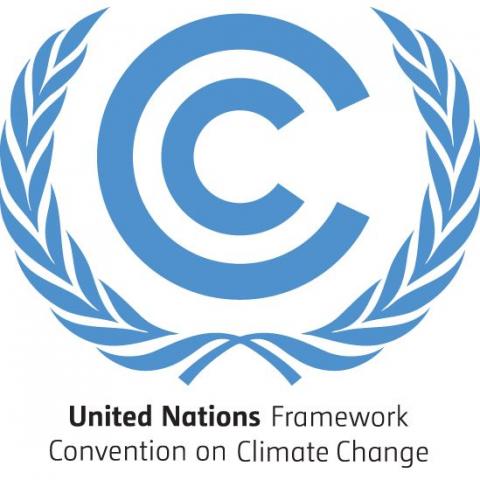
United Nations Framework Convention on Climate Change
The United Nations Framework Convention on Climate Change aims to address global warming by promoting international cooperation and agreements to reduce greenhouse gas emissions and mitigate climate change impacts.
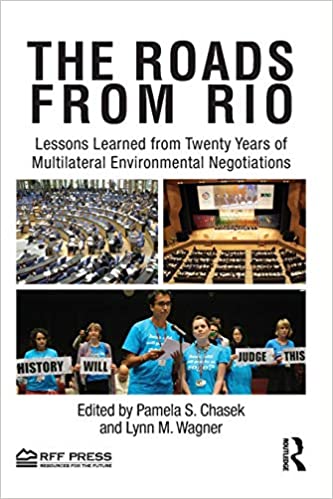
The Roads from Rio: Lessons Learned from Twenty Years of Multilateral Environmental Negotiations
The text discusses key lessons learned from two decades of multilateral environmental negotiations, emphasizing insights gained since the Rio conference.
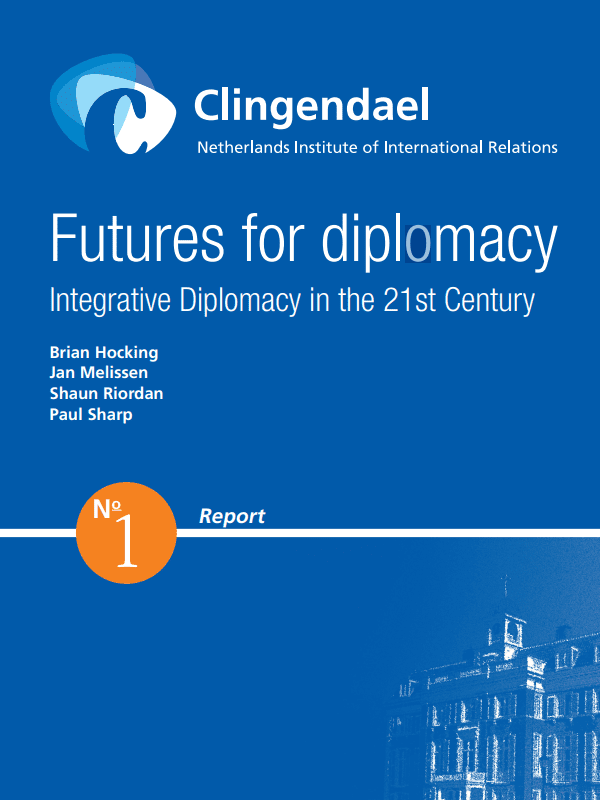
Futures for diplomacy: Integrative Diplomacy in the 21st Century
The text discusses Integrative Diplomacy in the 21st century, emphasizing the importance of adapting traditional diplomacy to current global challenges and opportunities. Diplomacy is viewed as a tool for addressing complex issues through collaboration and integration, fostering mutual understanding and sustainable solutions. The changing dynamics of international relations require a more inclusive and interconnected approach, focusing on partnerships and cooperation in order to navigate the complexities of the contemporary world. Diplomacy is seen as essential in shaping the future of global ...
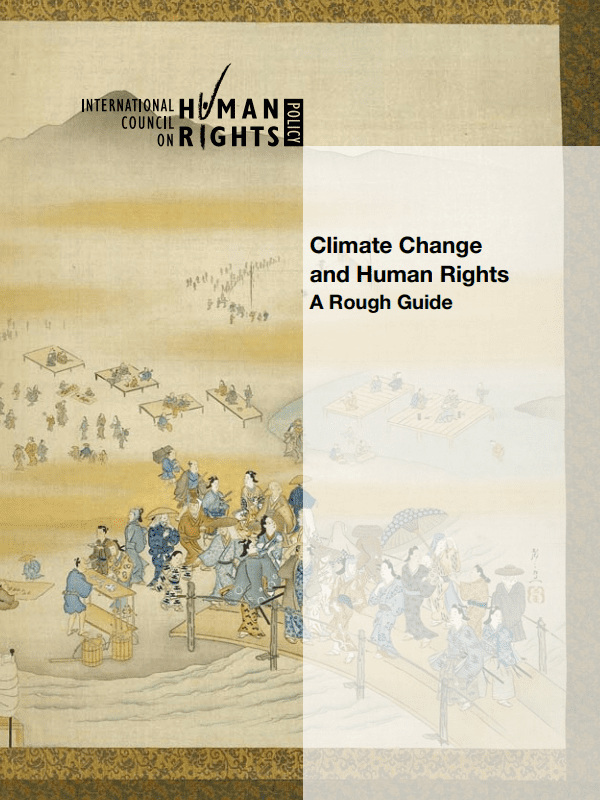
Climate Change and Human Rights: A Rough Guide
This text provides an overview of the intersection between climate change and human rights, emphasizing the impacts on vulnerable populations and the need to address these issues to protect human rights.
Equity and state representations in climate negotiations
The text examines the dynamics of equity and state representations within climate negotiations, highlighting the complexities and challenges of addressing fairness and inclusivity in global climate governance.
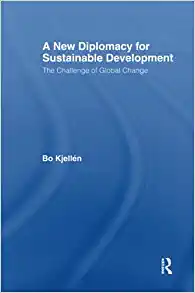
A New Diplomacy for Sustainable Development: The Challenge of Global Change
The text discusses the need for a new diplomacy approach to address the challenges of global change and foster sustainable development.

Kyoto Protocol to the United Nations Framework Convention on Climate Change
The Kyoto Protocol to the United Nations Framework Convention on Climate Change outlines international commitments to reducing greenhouse gas emissions to combat climate change.
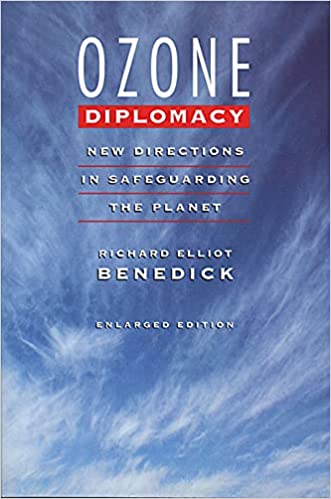
Ozone Diplomacy: New Directions in Safeguarding the Planet
The message focuses on the book "Ozone Diplomacy: New Directions in Safeguarding the Planet.
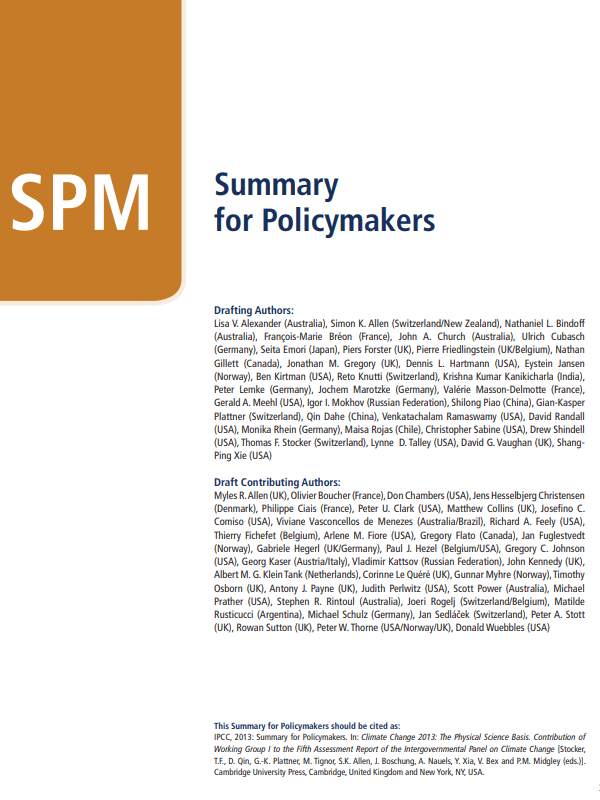
Fifth Assessment Report: Summary for Policymakers
The document provides a comprehensive summary of the scientific understanding of climate change, highlighting key findings, observed changes, and projected impacts, as assessed by the Working Group I contribution to the Fifth Assessment Report (AR5) of the Intergovernmental Panel on Climate Change (IPCC).

Reducing Disaster Risk: A Challenge for Development
The text discusses the complex challenge of reducing disaster risk in development projects.
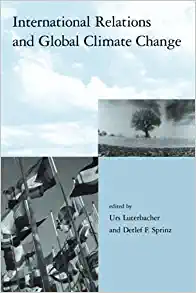
International Relations and Global Climate Change
International relations play a crucial role in addressing global climate change. Cooperation among nations is essential to develop and implement effective solutions to combat climate change. Additionally, international agreements like the Paris Agreement serve as frameworks for countries to work together towards reducing greenhouse gas emissions and mitigating the impacts of climate change on a global scale. By fostering collaboration and sharing resources, countries can make significant progress in the fight against climate change.
Global environmental diplomacy: Comparing and sharing
The article discusses the importance of global environmental diplomacy in addressing environmental issues and highlights the benefits of comparing and sharing strategies among nations.

Manual on Compliance with and Enforcement of Multilateral Environmental Agreements
The text provides comprehensive guidance on compliance with and enforcement of multilateral environmental agreements, offering practical strategies and tools for enhancing global environmental governance.
The Global Climate Change Regime
The global climate change regime is a complex system of international agreements and protocols aimed at addressing the challenges posed by climate change. It involves collaboration between countries to reduce greenhouse gas emissions, adapt to the impacts of climate change, and promote sustainable development. The regime is characterized by ongoing negotiations, commitments, and actions to combat climate change on a global scale.

Environment and Natural Resources in Small Island Developing States
The message is likely a discussion or information about the environment and natural resources in Small Island Developing States.

Message on Switzerland’s International Cooperation in 2013-2016
The text discusses Switzerland's international cooperation activities from 2013 to 2016.

Climate change, small island developing states
The message highlights the vulnerability of small island developing states to the impacts of climate change. These countries face challenges such as rising sea levels, extreme weather events, and loss of biodiversity. Urgent action is needed to address these issues and support these vulnerable nations in adapting to and mitigating the effects of climate change.
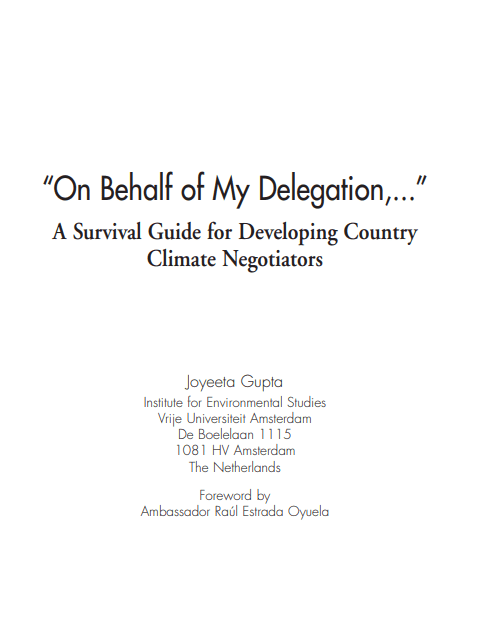
On Behalf of My Delegation,…: A Survival Guide for Developing Country Climate Negotiators
The one hundred pages of this book are in fact a useful Survival Guide for those approaching climate change negotiations for the first time. It has been written for developing country delegates, but delegates from other countries can also profit from its reading the same way that a similar survival guide for industrialized country delegates would be useful for those coming from developing countries, because it is necessary to know both sides of the story
The latest from Diplo and GIP
Tailor your subscription to your interests, from updates on the dynamic world of digital diplomacy to the latest trends in AI.
Subscribe to more Diplo and Geneva Internet Platform newsletters!
Diplo: Effective and inclusive diplomacy
Diplo is a non-profit foundation established by the governments of Malta and Switzerland. Diplo works to increase the role of small and developing states, and to improve global governance and international policy development.


